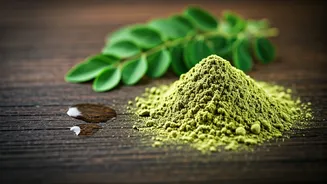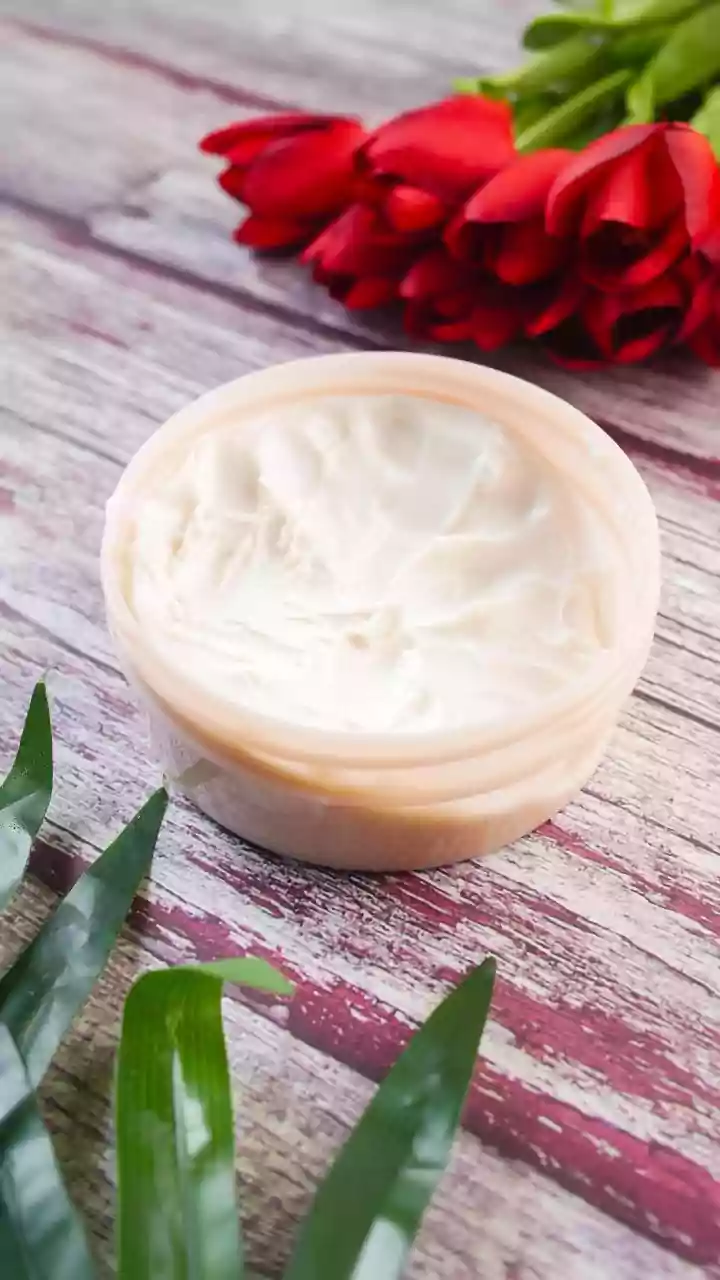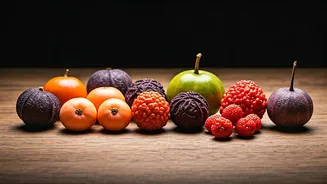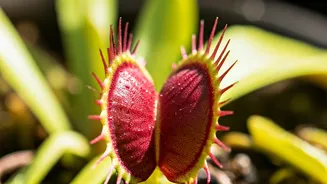Moringa's Hair Power
Moringa, often celebrated as a 'miracle tree,' holds a special place in the realm of hair care. This is attributed to its rich nutritional profile that
includes vitamins, minerals, and antioxidants. These components work synergistically to nourish the scalp, fortify hair follicles, and encourage growth. Moringa can address various hair concerns, from dryness and breakage to promoting overall hair health. The leaves and pods of the moringa tree are packed with nutrients like Vitamin A, which supports cell growth, and zinc, which is crucial for hair tissue repair. The antioxidants combat free radicals that can damage hair, contributing to its strength and shine. The application of moringa can be done in different ways, depending on your convenience and preference.
Moringa Powder vs. Juice
Deciding between moringa powder and juice depends on your lifestyle and preferences. Moringa powder is a convenient option, easily incorporated into smoothies, juices, or sprinkled onto food. It is a versatile choice for everyday use. Moringa juice, on the other hand, offers a more concentrated dose of nutrients, as it is often made from fresh moringa leaves. This provides a higher concentration of vitamins and minerals directly to your body. The juice is also believed to have a refreshing effect. Both forms offer the same benefits, but the choice boils down to individual preference, ease of use, and how your body responds to each option. Both are extremely beneficial for hair growth. Consider trying both to see which one works better for you.
How To Consume Moringa
Integrating moringa into your daily routine is simple. Moringa powder can be mixed into water, juice, or smoothies. Try adding a teaspoon of the powder to your morning drink or blending it into a post-workout smoothie to get your daily dose. You can also add the powder to your meals by sprinkling it over salads, adding it to soups, or mixing it into your cooking. Fresh moringa juice can be consumed directly or mixed with other fruit juices for added flavor and nutritional benefits. You can start with a small amount and gradually increase the dosage to avoid any digestive discomfort. Always consult with a healthcare professional before making significant changes to your diet, especially if you have any underlying health conditions.
Traditional Indian Use
In traditional Indian hair care practices, moringa has been used for centuries. It is included in hair masks, oils, and conditioners. The tree's leaves, rich in nutrients, are crushed into a paste and applied directly to the scalp to promote hair growth and reduce dandruff. Moringa oil, extracted from the seeds, is also used to moisturize the scalp, add shine, and strengthen the hair. It is often combined with other traditional ingredients like amla, shikakai, and reetha to enhance its benefits. The use of moringa in these traditional remedies highlights the deep-rooted connection between the tree and Indian culture, passed down through generations. Its inclusion in hair care products reflects its effective properties.
Who Should Consume?
Moringa is generally safe for consumption, but certain individuals should approach it with caution. It is beneficial for people looking to improve hair health, as it provides vital nutrients for growth and strength. Those with iron deficiencies can benefit from moringa's iron content, which helps combat hair loss associated with iron deficiency. Additionally, anyone wanting to improve their skin and overall well-being can benefit. However, pregnant or breastfeeding women and individuals with certain health conditions should consult a healthcare provider before including moringa in their diets, as it can have potential side effects. It is essential to ensure that the consumption aligns with your health status to avoid adverse effects.
Potential Side Effects
While moringa is generally safe, some side effects have been reported. These side effects are usually mild. The most common side effects include digestive issues such as stomach upset, diarrhea, or bloating, especially when consuming large amounts. Allergic reactions are rare, but some individuals may experience skin rashes or itching. Individuals with diabetes or those taking medications should consult a doctor before use, as moringa can affect blood sugar levels. It is always best to start with a small amount and monitor your body's response. Discontinue use and consult a doctor if you experience any adverse reactions. Be informed to reap the full benefits without unnecessary risks.




















